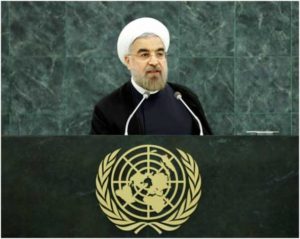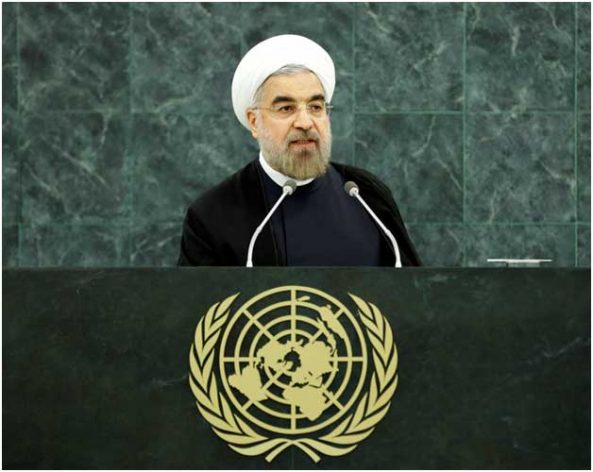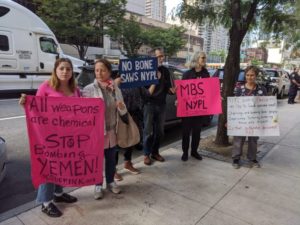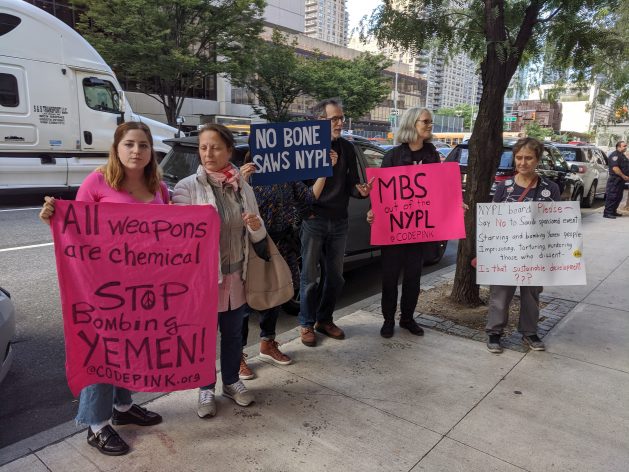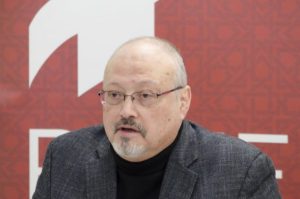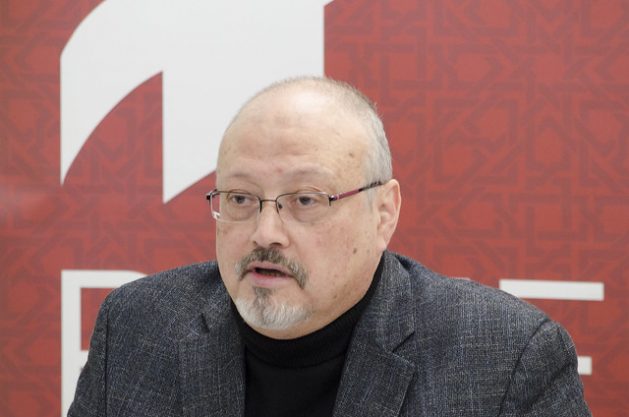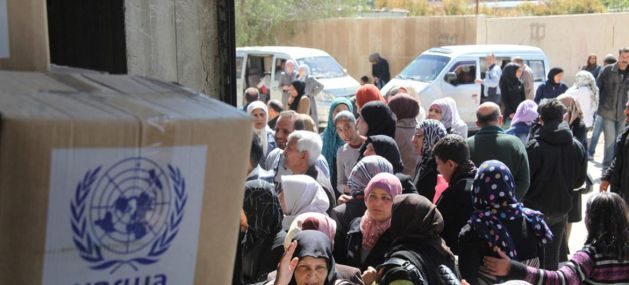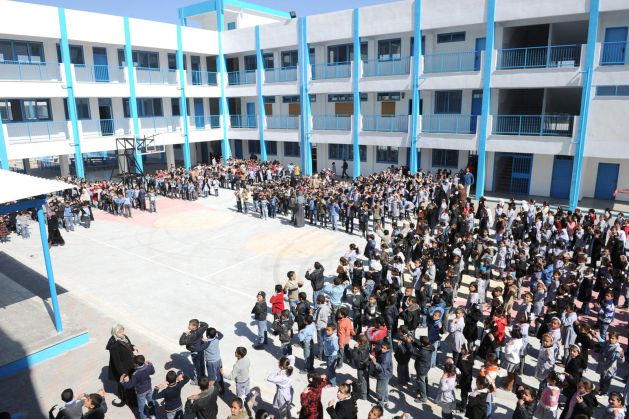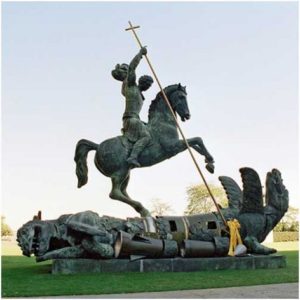
Armed Conflicts, Civil Society, Featured, Global Geopolitics, Headlines, IPS UN: Inside the Glasshouse, Middle East & North Africa, Nuclear Energy – Nuclear Weapons, Peace, TerraViva United Nations
Tariq Rauf, former Head of Verification and Security Policy Coordination, Office reporting to the Director General, International Atomic Energy Agency (2002-2011), was responsible for safeguards and security policy, the Director General’s annual report on the Application of Safeguards in the Middle East and for the IAEA Forum on the Experience of NWFZs relevant for the Middle East.
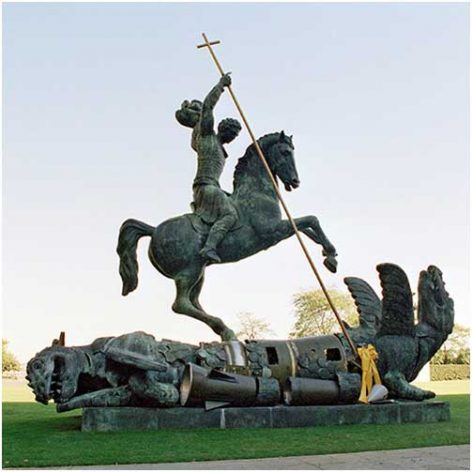
Credit: United Nations
– A historic conference on the Middle East opened at the United Nations in New York on 18th November and will continue until 22nd November. The Conference on the Establishment of a Middle East Zone Free of Nuclear Weapons and Other Weapons of Mass Destruction is presided over by Ambassador Sima Bahous of Jordan.
This matter has been before the international community since 1974 and remains controversial and unresolved to this day. On the one side, the Arab States of the region of the Middle East and Iran have called for the establishment of a nuclear-weapon-free zone in the Middle East and the dismantlement of Israel’s clandestine nuclear weapon programme.
On the other side, Israel supported by the EU member States, Canada and the US, maintain that regional peace and security is a pre-condition for any negotiations on such a zone and that concerns about nuclear programmes in certain Arab States also need to be resolved first.
Thus, this matter has simmered for decades, plagued the proceedings and outcomes of the review conferences of the nuclear non-proliferation treaty, the annual General Conferences of the International Atomic Energy Agency (IAEA), as well as the First Committee and the United Nations General Assembly.
Now finally, pursuant to a decision by the General Assembly in December 2018, this conference is going ahead albeit without the participation of Israel and the United States.
Nuclear-weapon-free zones
The original concept of establishing nuclear-weapon-free zones (NWFZs) was conceived with a view to preventing the emergence of new nuclear-weapon possessor States.
Efforts to ensure the absence of nuclear weapons in other populated parts of the world have led to five regional denuclearization agreements—the 1967 Treaty of Tlatelolco covering Latin America, the 1985 Treaty of Rarotonga covering the South Pacific, the 1995 Treaty of Bangkok covering Southeast Asia, the 1996 Pelindaba Treaty covering Africa, and the 2006 Central Asian NWFZ treaty, all are in force—thus the entire southern hemisphere below the Equator is covered by NWFZ treaties.
In addition, in 1992 Mongolia declared itself to be a nuclear-weapon-free space that was approved by the Great Hural in 2000 and endorsed by UNGA in 2002.
Also, certain uninhabited areas of the globe have been formally denuclearized. They include Antarctica under the 1959 Antarctic Treaty; outer space, the moon, and other celestial bodies under the 1967 Outer Space Treaty and the 1979 Moon Agreement; and the seabed, the ocean floor, and the subsoil thereof under the 1971 Seabed Treaty.
General Assembly resolution 3472 B (1975) defines a Nuclear-Weapon-Free Zone as
- • any zone recognized as such by the General Assembly of the United Nations, which any group of States, in the free exercises of their sovereignty, has established by virtue of a treaty or convention whereby:
a) The statute of total absence of nuclear weapons to which the zone shall be subject, including the procedure for the delimitation of the zone, is defined;
b) An international system of verification and control is established to guarantee compliance with the obligations deriving from that statute.
NWFZs ban the production, testing and stationing of nuclear weapons, permit peaceful uses, include verification provisions and in some cases an institutional set up; and require security assurances from nuclear-weapon States.
Article VII of the Treaty on the Non-Proliferation of Nuclear Weapons (NPT) affirmed the right of States to establish NWFZs in their respective territories and the 1995 NPT Review and Extension Conference (NPTREC) expressed the conviction that regional denuclearization measures enhance global and regional peace and security.
The NPTREC adopted a Resolution on establishing a zone free of nuclear and other weapons of mass destruction as well as delivery systems in the region of the Middle East. The 2000 NPTRevConf reiterated the importance of the 1995 Resolution, and the 2010 RevConf mandated that a conference be held on such a zone by 2012; and the 2015 RevConf came to an inglorious end over disagreements on the Middle East zone.
Earlier in 2000, the IAEA General Conference adopted a Resolution for the IAEA Director General to convene a Forum on Experience of NWFZs Relevant for the Middle East. On joining the IAEA in 2002, the Director General assigned me the task to make the arrangements for holding this Forum – during the course of the summers of 2002-2004, I was able to get agreement on the Agenda but the Forum itself was convened only in November 2011.
Representatives from all five zones and Mongolia attended and made presentations at the IAEA Forum; however, under the-then Director General the Agency acceded to pressure from certain sources to ensure that the Forum was a one-off event and that there would not be any follow-up activities.
In terms of new NWFZs, the Middle East remains an old unfulfilled aspiration. First jointly proposed by Egypt and Iran in 1974 through a General Assembly resolution, the concept was broadened in 1990 through the Mubarak Initiative to cover all weapons of mass destruction.
There is as yet no general agreement on the contours and details of a WMD-free zone (WMDFZ), however keeping to basics it is possible to identify practical measures and elements – as is endeavoured in the draft treaty text prepared by The METO Project.
Middle East
Traditionally, Egypt has taken the lead in promoting efforts for the implementation of the 1995 NPTREC Resolution on the Middle East in the NPT review process, as well as at the IAEA General Conference and at the First Committee of the UN General Assembly (UNGA) on the establishment of a NWFZ in the region of the Middle East.
Last year, UNGA First Committee adopted by voting (103 yes :3 no : 71 abstentions) decision (A/C.1/73/L.22/Rev.1) co-sponsored by Algeria, Bahrain, Comoros, Djibouti, Egypt,* Iraq, Jordan, Kuwait, Lebanon, Libya, Mauritania, Morocco, Oman, Qatar, Saudi Arabia, Somalia, Sudan, Tunisia, United Arab Emirates, Yemen and State of Palestine on Convening a conference on the establishment of a Middle East zone free of nuclear weapons and other weapons of mass destruction.
The UNGA decision A/73/546, adopted on 22 December 2018 by a vote of 88 to 4 with 75 abstentions, called on the UN Secretary General to:
- • convene a conference for the duration of one week to be held no later than 2019 dealing with the establishment of a Middle East zone free of nuclear weapons and other weapons of mass destruction;
• the conference shall take as its terms of reference the 1995 NPTREC resolution;
• all decisions emanating from the conference shall be taken by consensus by the States of the region;
• all States of the Middle East, the three co-sponsors of the 1995 resolution on the Middle East, the other two nuclear-weapon States and the relevant international organisations (IAEA, OPCW, BTWC ISU) to participate;
• the Secretary-General to convene annual sessions of the conference for a duration of one week at United Nations Headquarters until the conference concludes the elaboration a legally binding treaty establishing a Middle East zone free of nuclear weapons and other weapons of mass destruction, on the basis of arrangements freely arrived at by the States of the region ; .
Accordingly, Under-Secretary General and High Representative for Disarmament Izumi Nakamitsu and the Department for Disarmament Affairs made the preparations to hold the conference on 18-22 November 2019.
The main areas of contention between the Arab States and Israel can be summarized as follows: that there still continues to be a long-standing and fundamental difference of views between Israel, on the one hand, and other States of the Middle East region, on the other hand, with regard to the establishment of a zone free of nuclear and other weapons of mass destruction in the region of the Middle East (MENWFZ/WMDFZ).
Israel takes the view that MENWFZ/WMDFZ and related regional security issues, cannot be addressed in isolation from the regional peace process and that these issues should be addressed in the framework of a regional security and arms control dialogue that could be resumed in the context of a multilateral peace process.
These should help reduce tensions, and lead to security and stability in the Middle East, through development of mutual recognition, peaceful and good neighbourly relations and abandonment of threats and use of force by states as well as non-State actors as means to settlement of disputes.
Following the establishment of full and lasting peaceful relations and reconciliation among all nations of the region, such a process could lead to the adoption of confidence-building measures, discussion of arms control issues, and eventually pave the way to regional negotiations of a mutually and effectively verifiable regime that will establish the Middle East as a zone free of chemical, biological, and nuclear weapons as well as ballistic missiles.
Israel also holds the position that any modalities, obligations or provisions should be solely addressed by the states concerned through direct negotiation.
The other States of the region maintain that there is no automatic sequence which links the establishment of the zone, the application of IAEA comprehensive safeguards to all nuclear activities in the Middle East, to the prior conclusion of a peace settlement, and that the former would contribute to the latter.
The Arab States maintain that all of them have acceded to the NPT, while Israel continues to defy the international community by refusing to become a party to the Treaty or to place its installations under the Agency’s comprehensive safeguards system, thus exposing the region to nuclear risks and threatening peace.
Israel’s possession of nuclear weapons is likely to lead to a destructive nuclear arms race in the region; especially if Israel’s nuclear installations remain outside any international control.
Most Arab States of the region of the Middle East consider that:
- • the 2018 UNGA decision A/73/546 on convening a conference on the zone was a breakthrough;
• the new initiative through the UNGA is directed at all States of the region of the Middle East, the three co-sponsors of the1995 NPTREC Resolution are invited and no States of the region shall be excluded;
• while the UNGA route was not ideal, it was resorted to as there was no realistic alternative due to the prevailing situation regionally and globally; and
• the initiative shall be fully inclusive, involve direct dialogue, be based on arrangements freely arrived at, there will be no singling out of any State of the region; however, if any State of the region does not attend, this cannot prevent other States of the region to attend the conference slated for November this year.
Regarding the question of how to deal with the Middle East issue at the 2020 review conference of the nuclear Non-Proliferation Treaty (NPT), the following points are relevant:
- (a) the NPT review process remains the primary focus and the UNGA initiative is not an alternative to the NPT process but should be regarded as parallel and complementary;
(b) it can alleviate pressure on the 2020 review conference;
(c) there is no intention to hold the review conference hostage to the Middle East issue and the NPT States of the region want the review conference to be successful;
(d) the UNGA conference shall be open to all States and now it is important to start engagement and preparations on the modalities and procedural aspects;
(e) the assertion is incorrect that Israel was not consulted in advance on the 2018 resolution at UNGA, in fact it was consulted in advance of the decision;
(f) the decision garnered more than 100 affirmative votes at UNGA, which was a clear majority;
(g) the 2019 NPT PrepCom should take factual note of the UNGA decision to convene the conference in November;
(h) the Middle East zone issue remains within the NPT process and the 2020 review conference would have to reaffirm and recognize this;
(i) the November conference provides an opportunity to all States to meet and discuss zone matters, express views, all decisions shall be by consensus, it is an opportunity for direct consultations among the States of the region of the Middle East, and it is up to the States of the region to decide whether to sign/ratify a future MEWMDFZ treaty;
(j) the Middle East zone now can be considered as the fourth pillar of the NPT;
(k) it is regrettable that some States (Israel and the United States) had urged the IAEA (and other relevant international organizations) not to attend the November conference;
(l) the NPT States of the region believe in collective not selective security and this calls for the universalization of the NPT and the cessation of granting privileges to States not party to the Treaty (Israel);
(m) regarding the three co-sponsors (Russia, UK, USA) of the 1995 NPT Review and Extension Conference Resolution calling for the establishment of a zone free of nuclear and other weapons of mass destruction: the UK has voiced support for the vision of a MEWMDFZ and is attending the November conference; the Russian Federation endorsed the convening of the conference also is attending the November conference which it regards as easing pressure at the 2020 review conference; while the US has indicated support for the goal of a Middle East free of WMD based on direct dialogue and consensus but has condemned the General Assembly decision of 2018 to convene the November conference as “illegitimate” and is boycotting the conference; and
(n) Israel too has decided not to attend the November conference.
The METO Project
The Middle East Treaty Organization (METO) Project for a zone free of WMD in the Middle East represents a civil society initiative on “Achieving the Possible” was launched and sustained by Sharon Dolev of the Israeli Disarmament Movement and has attracted support from experts from States of the region of the Middle East as well as from other countries. The METO project has developed the elements of a text of a MEWMDFZ treaty that has been shared with the States of the Middle East region and is designed to serve as a catalyst for them to jump start discussions on such a treaty.
Ii is hoped that the States attending the current conference can draw motivation, ideas and elements from the draft treaty text prepared by the METO Project as they discuss the possible elements and provisions of a future treaty that can garner the support of the States of the region.
Some may find shortcomings or omissions in the draft text but States of the region and other concerned parties are invited to further develop, enhance and enrich the elements presented in the draft text.
This effort needs to be joined not by sceptics nor naysayers but by optimists and those who are serious about promoting the cause of a Middle East free of weapons of mass destruction and of its transformation into a region of peace, justice and security.
Conclusion
The Conference on the Establishment of a Middle East Zone Free of Nuclear Weapons and Other Weapons of Mass Destruction now underway at the United Nations in New York provides a belated but important opportunity to address regional security, non-proliferation and disarmament matters in the region of the Middle East.
It sets into place an annual process focusing on discussing matters pertaining to eliminating the threats, dangers and risks of nuclear, chemical and biological weapons in the region; achieving universal adherence in the region to the NPT through the verified elimination of Israel’s nuclear weapon programme, and also securing universal adherence in the region to and compliance with the Biological and Toxin Weapon Convention and the Chemical Weapons Convention that prohibit biological and chemical weapons, and signature and/or ratification of the Comprehensive Nuclear-Test-Ban Treaty (CTBT) that prohibits all types of nuclear explosive tests.
Bringing peace and security to the region of the Middle East should be accorded the highest priority by the States of the region as well as by all other States.
The views expressed are the writer’s personal observations.

